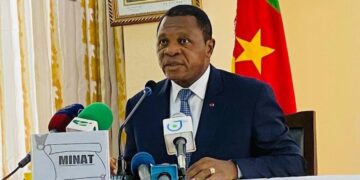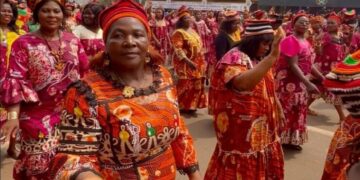As the country strives to modernize its economy, AI presents a unique opportunity to bridge gaps in healthcare, agriculture, education, and governance.
In today’s fast-evolving digital world, Artificial Intelligence (AI) has become a key driver of economic transformation, shaping industries, governance, and education globally. The question remains: could AI be Cameroon’s long-awaited leap towards sustainable development? As the country strives to modernize its economy, AI presents a unique opportunity to bridge gaps in healthcare, agriculture, education, and governance. However, for AI to truly benefit Cameroonians, there must be collective engagement from the government, private sector, media, and the general public.
The Cameroonian government has recognized AI’s potential and is taking steps to integrate it into national development strategies. In January 2025, Cameroon unveiled its National Artificial Intelligence Strategy, positioning AI as a catalyst for economic growth. This plan focuses on strategic sectors, including healthcare, education, agriculture, and governance, aiming to foster local innovation while ensuring responsible AI use. AI-powered technologies are already being explored to enhance medical diagnoses, improve agricultural yields, and digitize administrative services. Additionally, the Personal Data Protection Law No. 2024/017, enacted in December 2024, ensures that AI applications respect data privacy, transparency, and security.
This legal framework is crucial in building public trust and protecting citizens from potential. Despite these efforts, Cameroon still lags behind in AI research, infrastructure, and widespread adoption. If the country truly wants to position itself as an AI hub in Central Africa, it must increase investment in AI education, create incentives for tech startups, and establish AI research centers that can drive local solutions tailored to Cameroon’s socio-economic realities.
P & T ministry and AI Promotion
The Ministry of Posts and Telecommunications, P & T has been a key player in promoting AI’s integration into the digital economy. In June 2024, Minister Minette Libom Li Likeng highlighted AI’s significance in transforming the financial sector, particularly in fraud detection, risk management, and customer service. She also emphasized the need for infrastructure development and capacity building to enable the responsible adoption of AI in Cameroon. Furthermore, MINPOSTEL has been at the forefront of digital literacy campaigns, ensuring that Cameroonians understand AI and its impact.
The ministry has hosted several AI training workshops, bringing together experts, policymakers, and students to discuss AI’s role in shaping Cameroon’s future. The media plays a crucial role in educating and informing Cameroonians about AI’s potential. In December 2024, the Media Association for Mediation and Citizenship received recognition from the government for promoting responsible AI use among journalists and media practitioners. The Secretary General of the Ministry of Communication, Prof. Félix Zogo, emphasized that the media must be a watchdog and educator, ensuring that AI is used ethically and for national progress. AI-powered media tools are also gaining traction in Cameroon.
Several media houses are exploring AI-driven analytics for news reporting, helping journalists verify information faster and combat misinformation. However, more needs to be done to train journalists and media professionals on AI ethics, data protection, and digital transformation. While the government has initiated key policies, AI’s success in Cameroon depends on the collective efforts of its people. The private sector, universities, and young entrepreneurs must embrace AI as a tool for innovation and economic empowerment. Startups need funding and support to develop AI-based solutions for real-world problems, from healthcare delivery to climate change mitigation. Educational institutions must integrate AI into their curricula, equipping students with coding, machine learning, and data science skills to compete in the global AI economy.
Additionally, AI should not be confined to tech professionals; farmers, traders, and small businesses should also be introduced to AI-driven solutions that can enhance productivity and efficiency. AI presents Cameroon with an unprecedented opportunity to leapfrog traditional development challenges and position itself as a leader in Africa’s digital revolution. However, realizing AI’s full potential requires strong governance, investment in education, infrastructure development, and active public participation. If properly harnessed, AI could indeed be Cameroon’s giant move towards sustainable development, but only if all stakeholders government, media, businesses, and citizens work together to make it a reality. The time for Cameroon to embrace AI is now. Will we seize this opportunity, or will we remain passive observers in the digital revolution?





































































